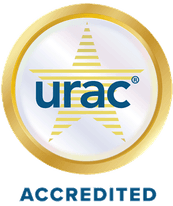SmithRx Clients Drug Costs Remain Significantly Below Industry Benchmarks
Written by
SmithRx
Nov 16, 2023
While drug costs are increasing rapidly, SmithRx’s clients see pharmacy costs fall or remain flat
American patients and the employers they work for have carried a heavy economic burden as drug costs have nearly tripled over the past two decades. Costs continue to rise year after year, making it harder for patients to pay their out of pocket costs for medications and for businesses to offer affordable prescription drug benefits.

Meanwhile, the legacy pharmacy benefit managers (PBMs) who are meant to be managing these costs for employers and health plans and negotiating on their behalf, have instead been enriching themselves as costs have increased.
UnitedHealth, for example, which owns the PBM OptumRx, has seen their stock price rise from $60 to $500 over the past 10 years. The owners of the two other largest PBMs, Express Scripts (owned by Cigna) and CVS Caremark (owned by CVS/Aetna), have also found ways to boost their bottom line with rising drug costs, even when it hurts their clients. Put simply, legacy PBMs make more money when drug prices go up since they are paid a percentage of ever higher drug prices.
The playbook for these PBMs is to use spread pricing to make money on drug sales, and to keep as much of their clients’ rebates as possible. In recent years, they have gone so far as to create offshore holding companies to collect and channel their rebate dollars in order to further obscure them from oversight. They also shamelessly used the post-Uvalde school shooting safety bill to extend their anti-kickback safe harbor for their rebates (without this explicit safe harbor, rebates would be considered kickbacks under typical business rules).
Exposure of these pricing schemes has led to investigations by the FTC and proposed bipartisan federal legislation to try to curtail excessive extra costs added by PBMs. As a result PCMA, the legacy PBM lobby group, has created a narrative that pass-through pricing will cause volatility in the market and increased costs for employers. They are attempting to rebrand spread pricing as "Risk Mitigation Pricing" in an effort to change the narrative.
From the client cost perspective, these huge legacy PBMs claim that they are controlling costs by pointing to their increased “AWP discounts” and “rebate guarantees,” and they have convinced much of the industry to rely on these metrics to evaluate their performance. They have also convinced their customers to not ask about or expect any of the other fees that they collect from pharmaceutical companies like market access fees, indirect and direct remuneration from retail pharmacies, and other administrative fees. Unfortunately for employers and patients, improving AWP discounts and rebate guarantees do not correlate to reducing costs, which is why costs have continued to rise. This is particularly true for patients, who do not benefit from rebate dollars on their medication.
A simple example helps illustrate why these metrics are broken. To boost “rebate guarantee” numbers, a PBM will sell you a higher cost drug with a rebate, instead of a drug with a lower net cost. The plan pays more, but the PBM makes more because they get to keep a chunk of that rebate. And then they claim that they performed well by achieving their rebate guarantee!
This type of thinking is why legacy PBMs continue to push $80,000 Humira on their clients when equivalent drugs like $6,000 Yusimry are available.
At SmithRx, we look at things differently. We focus on total net cost for our clients, not confusing PBM lingo. At the end of the day, it’s the bottom-line costs that matter for the employers and patients. SmithRx’s track record of saving employers consistently 20% or more of their total drug costs compared to legacy PBMs, is evidence that pass-through pricing and implementation of proper savings solutions is the true “risk mitigation pricing” since it lowers total costs for both patient and employers and keeps employers drug cost trends performing well below industry benchmarks.

We’re proud to report that our 100% pass-through model and our Connect 360 savings programs are delivering on this mission. While drug costs have risen significantly throughout the country over the past few years, SmithRx has achieved costs significantly below industry benchmarks, and kept those costs flat. After accounting for inflation, we have delivered reduced pharmacy cost burdens for the thousands of employers and hundreds of thousands of patients that we serve.
In the years ahead, we hope that more health plans are able to benefit from taking control over their spend by partnering with PBMs who have aligned, transparent business models. At SmithRx, we are proud to be putting control back into the hands of our clients and doing our part to address the drug cost crisis facing America.
See how much an honest, 100% pass-through PBM can save you: Request a repricing analysis.

Written by
SmithRx
SmithRx is the #1 Modern PBM, relentlessly focused on eliminating the conflicts and complexity of legacy pharmacy benefits. Built on radical transparency and fiduciary alignment, we empower employers to take control of their pharmacy spend and experience with our 100% pass-through model.





